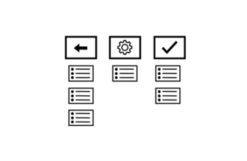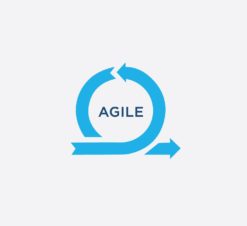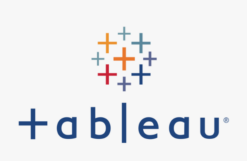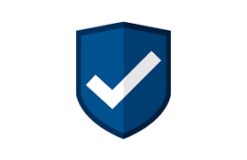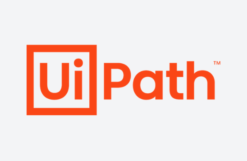Duration: 5 days – 35 hrs
Overview
Project Management Institute (PMI) offers a professional certification known as the Certified Associate in Project Management (CAPM)® for individuals seeking to gain more responsibility or add project management skills into their current role. The CAPM certification offers recognition to practitioners who are interested or are just starting a career in project management, as well as project team members who wish to demonstrate their project management knowledge. This certification indicates knowledge of the principles and terminology within A Guide to the Project Management Body of Knowledge (PMBOK® Guide) Sixth Edition, which outlines generally recognized best practices in project management.
Audience
- Individuals who contribute specialized skills to a project team can benefit from this
- certification by aligning their work with project managers.
- Individuals who do not have project experience but are interested in project management can also benefit from this certification by demonstrating their professional knowledge. This knowledge can be applied to on-the-job experiences that help develop competencies in the practice of project management.
- Individuals who carry the CAPM designation after their name enjoy a high
- level of credibility from Project Management Professional (PMP)® certification holders,
- Project Managers, Employers, and Peers.
Course Content
Introduction to Project Management (6%)
- Understand the five project management process groups and the processes within each
group - Recognize the relationships among project, program, portfolio, and operational
management - Define a typical project lifecycle
- Understand the function and importance of tailoring for different projects
Project Environment (6%)
- Identify the factors and assets that may impact the outcome of a project
- Distinguish between organizational systems
- Understand the purpose and activities of a Project Management Office
- Recognize the hierarchy of projects, programs and portfolios
Role of the Project Manager (7%)
- State the primary functions of a project manager
- Understand a project manager’s sphere of influence
- Identify the major elements included in the PMI triangle
- Recognize the difference between leadership and management
Project Integration Management (9%)
- Understand the seven project management processes in the project integration
management knowledge area - Identify the input, tools, techniques and outputs defined in the seven processes in project integration management
- Understand the purpose of project integration management and the project manager’s role within it
- Identify concepts and procedures related to project change management
- Identify tailoring consideration in project integration management and recognize key documents
- Identify methods for project integration and knowledge management
- ©2018 Project Management Institute, Inc. All rights reserved PMI Certified Associate in Project Management (CAPM) ® Exam Content Outline
CAPM EXAM CONTENT OUTLINE
Project Scope Management (9%)
- Understand the six project management processes in the project scope
management knowledge area - Identify the Input, tools, techniques and outputs defined in the six processes in
project scope management - Identify key concepts and tailoring consideration for project scope management,
and key roles in scope management - Identify the purpose and elements of a Work Breakdown Structure (WBS) for both Product and Project scope
- Understand project scope management for agile/adaptive projects, including the
use of prototypes
Project Schedule Management (9%)
- Define the six project management processes in the project schedule management
knowledge area - Identify the Input, tools, techniques and outputs defined in the six processes in
project schedule management - Solve simple network diagrams problems and perform basic scheduling
calculations - Identify considerations for agile/adaptive environments in project schedule Management
Project Cost Management (8%)
- Understand the four project management processes in the project cost management
knowledge area - Identify the Input, tools, techniques and outputs defined in the four processes in
project cost management - Identify key concepts in project cost management, including tailoring and special
considerations for agile/adaptive environments - Understand and apply basic forecasting and earned value methods for project
cost management
Project Quality Management (7%)
- Understand the three project management processes in the project quality management knowledge area
- Identify the Input, tools, techniques and outputs defined in the three-quality management processes
- Understand the reasons for and approaches to adapting quality management in different project environments
- Identify quality tools and approaches for continuous improvement
Project Resource Management (8%)
- Define the six project management processes in the project resource management
knowledge area - Identify the Input, tools, techniques and outputs defined in the six processes in project
resource management - Identify key concepts and trends in project resource management, including tailoring and special considerations for agile/adaptive environments
- Identify techniques for developing a team, managing conflict, and resolving resource-related problems
- Understand the components of a resource management plan and data representation
- techniques for managing project resources
Project Communication Management (10%)
- Understand the three project management processes in the project communication
management knowledge area - Identify the Input, tools, techniques and outputs defined in the three project communication management processes
- Identify key concepts and approaches in project communication management,
including tailoring and special considerations for agile/adaptive environments - Recognize the dimensions of communication and components of a
communications management plan - Identify communications skills and methods for project communication
management
Project Risk Management (8%)
- Understand the seven project management processes in the project risk management
knowledge area - Identify the Input, tools, techniques and outputs defined in project risk management
- Identify the key documents in project risk management
- Perform simple risk calculations
- Recognize when and how to adjust risk based on the project environment
Project Procurement Management (4%)
- Understand the three processes in the project procurement management knowledge area
- Identify the Input, tools, techniques and outputs defined in the three project procurement
- processes
- Identify key concepts and tailoring considerations for project procurement management, including trends and emerging practices
- Identify various types of contracts, agreements, and source selection methods
Project Stakeholder Management (9%)
- Understand the four project management processes in the project stakeholder
management knowledge area - Identify the Input, tools, techniques and outputs defined in the four-project stakeholder
management processes - Recognize key stakeholder’s roles and needs
- Identify the key concepts and benefits of stakeholder management



